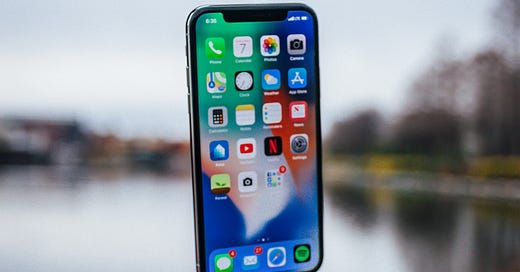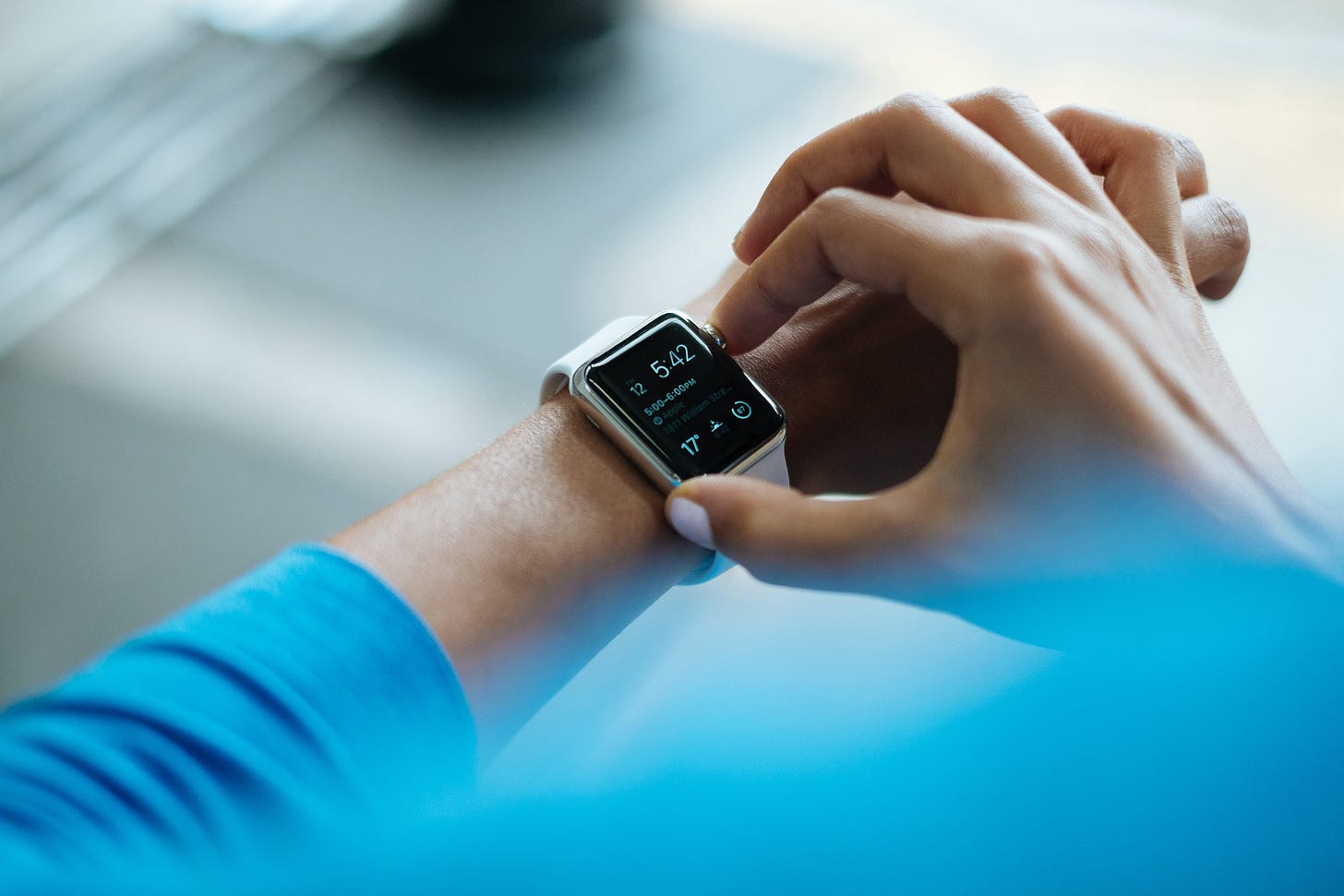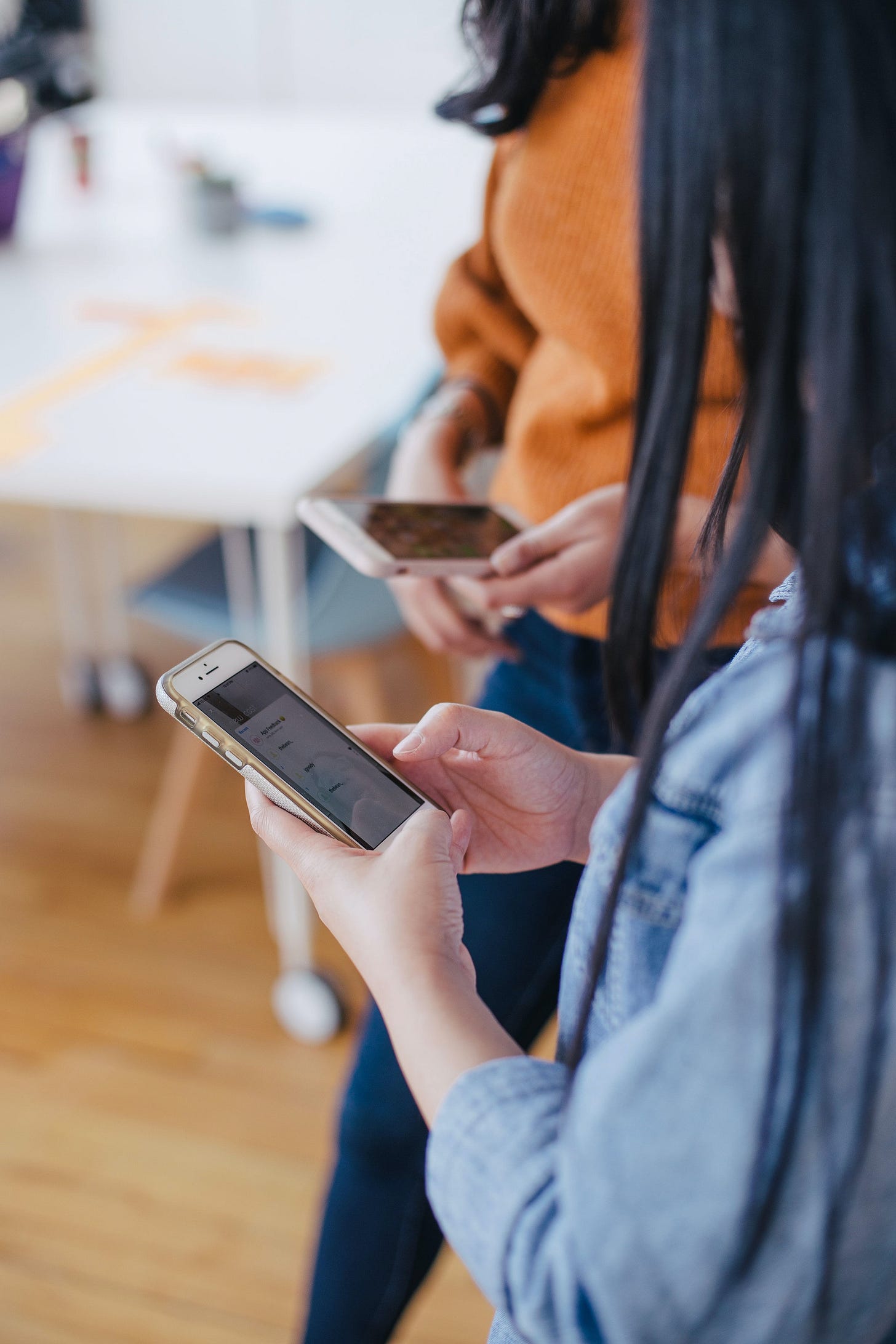As an educationalist, I’ve been more than aware - for years now - of the negative impact on technology for me and my students. As a ‘Generation X-er’, I view myself as fortunate to have grown-up without the Internet, and to therefore have a more objective view of the all-pervasive impact BigTech has on all our lives today. It ain’t good.
***This post is important and slightly too long for an email - please click on the link to read and share. Thanks!***
But things are now getting urgent. We need to wake more people up to this catastrophe happening in real time all around us. Technology has not only hijacked our minds, propaganda has hijacked our technology. So, I’ve recently been researching the above topic, including having read (admittedly a rather out-of-date version of) Catherine’s Price’s “How to Break up with Your Phone”. I’m posting this initial summary of my thoughts so far, mainly because it has dawned on me how serious this issue of addiction to technology is. And after reading Ruth Gaskovski’s excellent post:
…I’m motivated to do something about it. For starters, I want to create a short face-to-face workshop that allows my local Freedom group to discuss this problem and share ways to create a healthier future for us without this addiction. I also want to start a conversation with fellow teacher-educators and teachers - how are we going to address this problem?
There are three parts to this article:
· What is it exactly that makes our technology (mainly phones, but can be applied to many technologies) addictive?
· What is the impact of this addiction on us, our lives and the people around us?
· And what the hell can we do about it?
To start with - what are the technologies you have around you at the moment - what impact do they have on your everyday life? Phones, watches, iPads, laptops… Let’s begin a mindfulness exercise with where we are now.
Often people make the mistake of dismissing the suggestion that technology is addictive. Some teachers I know often talk about it like it’s a “just a classroom management problem” - a symptom of poor pedagogy. For instance, if students are on their phones, that may mean the lesson “isn’t interesting enough”, or that there is differentiation or fun ‘missing’. Teachers (themselves often addicts) claim their students become ‘disruptive’ if phones are taken away from them. Like babies given a dummy, the problem is temporarily silenced.
The underlying cause of poor educational outcomes is the elephant in the classroom.
Addiction to technology is all around us and has been normalized, often even toddlers have phones in their hands. Surely if it was a harmful addiction we would be more conscious of it and the potential harms - right? Wrong!
Paradoxically, increasingly, students are encouraged to use devices in lectures, lessons, seminars and assignments.
What are your perceptions and experiences of addicts or of being addicted? In many societies, especially in the past, victim-blaming means addicts of any kind can be stigmatized with labels like lacking self-control, or being ‘weak in character’. Not all addictions are drug-induced, some are behaviours like gambling or exercise. Some addictions combine the impact of synthetic chemicals with physiological reactions, like medicines and some combine these biological effects with compulsive behaviours too, like alcoholism, smoking or vaping.
Are you addicted to technology? Reflecting honestly will usually give you an answer. But if you are in need of more clarity, try Dr David Greenfield’s Quiz – are you addicted? This will ask you questions like:
· Do you feel anxious when you are somewhere without your phone?
· Do you find yourself mindlessly checking your phone numerous times a day?
As a friend pointed out to me, this isn’t just about your phone: do you switch-on your TV just for ‘company’? What kind of ‘company’ does your phone, device, or TV provide you with? I think we all know the answers to these uncomfortable questions, and the answers are not being openly discussed, or if they are, they are quickly dismissed. Not only are our addictions to technology not being openly discussed in our everyday circles, but they are also ignored in our classrooms, where teachers and their managers are either willfully blind to the dangers, or unknowingly addicted themselves, making things even worse for future generations.
We urgently need to have an honest, public conversation about our relationship with technology.
What is it that makes our phones addictive?
As smoking, drugs and gambling have taken on a stigma over time and been pushed out of public view, phone addiction has quickly replaced these behaviours as a socially acceptable norm. But is this OK?
Knowledge of the basics of addiction is useful, but let’s not go into too much detail here. Suffice to say we are talking about concepts of compulsion and tolerance. The more stimulation for satisfaction we need from getting something, the more we may suffer from withdrawal without that stimulation. Most know about the impact of the chemical dopamine on the human body – which is the result of pleasurable reward and excitement. Dopamine is also experienced through anticipation of that pleasurable feeling (Pavlov’s drooling dogs are the obvious example of that ‘classical conditioning’). In terms of our phones, this partly explains why seeing others using their phones acts as a trigger to check our own phones too. This leads to a cycle of reduction in our social interactions.
There are chemical reactions in the brain that determine this behaviour, and these can be overcome. But it takes mindfulness and practice, and as with any addiction, tried-and-tested strategies can help.
It's not a coincidence that our phones have ‘conveniently’ become a ‘tool’ for everything, from taking photos to collecting recipes. Phone and app developers know all about the psychological tricks needed to reward you, that ‘hook’ you into responding in a certain way and sharing information across platforms.
And “When all you have is a hammer, everything looks like a nail” right? Your phone can be used instead of a notebook, alarm clock, dictionary, map….the list goes on as long as you want it to…
Q: How many apps do you have - are they all useful?
Fact: your phone is designed to be addictive. Notifications are red in colour for good reason – they highlight a ‘new thing’ and what that ‘new thing’ is, is unpredictable. That’s the ‘rush’ that phones provide. Intermittent reinforcement - that is the unpredictability that is the dopamine hit. And why do companies design these addictions? The more information we provide to our phones, the more they can harvest for marketing purposes. There is Big Profit in BigData!
What is the impact of this addiction on us, our lives and the people around us?
There have been millions of studies confirming the complex harms that result from our addiction to technology. So there’s no point in listing these here. This addiction literally hijacks our minds by reducing our ‘flow’ and concentration spans, limiting our productivity and making us depressed. I’ll just highlight a few in here that you may like to investigate further.
Many of us find ourselves printing online documents that we think are ‘important’ to understand on a deeper level (and keep). This isn’t because we are ‘just old-fashioned’ in our approach. There’s a scientific explanation. Our comprehension of words on paper and in books is fundamentally different compared to words viewed on a screen. Our brain connections and memory recall is reduced when reading something digital. (for an interesting discussion about this in ESOL learning, see this). Is that why our literacy standards have fallen as more and more children learn online?
The act of reaching for our phone is often through boredom - our subconscious seeks an emotional stimulus. Instead, maybe we could focus our time on a new task or hobby? Think about what you could achieve if the time ‘wasted’ on your phone could be targeting a new achievement. What do you want to do instead?

Our addiction to notifications stems from a universal need for personal affirmation – everyone wants to be loved… If people offer ‘likes’ on our posts or photos that supports us, and helps us feel better about ourselves. But over time, we our expectations increase and we remain unsatisfied. In the longer-term our ongoing need for this support becomes impossible to fulfill. This is partly why there is a correlation between the time we spend on social media and levels of depression, anxiety and lower self-esteem. Apps exploit this vulnerability.
The constant seeking of dopamine hits through anticipation of notifications and running through cycles of mindless scrolling for that ‘new’ piece of information ruins our ‘flow’ – that is our ability to stick to a task and complete it. If this behaviour isn’t controlled, it reduces the quality of our sleep and therefore can have a negative impact on our health and well-being.
And what the hell can we do about it?
I do know a handful of people who have consciously decided to ditch their ‘smart’ phones in exchange for ‘dumb’ phones. But that could be stretching things too far for most.
Alternatively, try a 24-hour technology detox. Turn your devices off (perhaps tell important people, and/or set an ‘auto-response’ first). Buy an old-fashioned alarm clock, and keep/charge your devices well away from where you sleep.
During and after this detox - journal/record how you felt and why.
Next: Make a plan, set a goal.
Reflect on how the detox went – how you can improve on it next time. The objective of a detox is not to eventually totally do away with your phone (unless you want to?). The objective is to have a healthier relationship with your phone as a tool – not for you to be a tool of your phone (or rather, its profiteering developers).
Let’s think carefully about what is on your device. Some apps are ‘slot machines’ - these are apps that are hard to stop using, you feel anticipation when you open them, but disappointed when you’re finished with them.
By using mindfulness we can train our brains to stop the harmful, repetitive, addictive behaviours and to focus on other positive things, instead. Like unhealthy high-fat, sugary snacks we can rethink our diet and stop binging. Mindfulness allows that space to ask ourselves ‘what are we doing and why?’…
Price recommends we make time to go through all our apps. Delete all non-essential apps, including social media if you can bear it (access these on a lap top instead). Turn off all your notifications. Make a new goal for yourself – interact with the apps when YOU choose to and on your terms. If you are anxious about not receiving notifications from certain people in an emergency, then highlight these as ‘ViPs’ (look up how to do this on Youtube etc if necessary).
Making addictive behaviours more difficult through deliberate ‘speed bumps’ is an established strategy and is more effective when self-imposed. Like locking away those chocolate biscuits.
Now divide your apps into separate categories and be strategic about making it time consuming to reach them. Mindfulness needs help – if there are even a few seconds between you wanting to reach an app and waiting for it to re/appear, then that is an opportunity worth creating to reduce addictive beaviours. There are even apps that can artificially delay that wait for you (who knew?). There are lots of different ideas– have a go and see what works for you. Here’s a top tip on a ‘speed-bump’ from Price’s book: each ‘home’ screen could be restricted to ‘tools’ only:
Tools = camera, maps, banking, music etc - these are the ‘tools’ that will not usually lead to a spill-over into other apps, cycles of mindlessness or changes in emotions.
On the second screen, include ‘Junk food’ apps: these are ‘leaky’ apps that often lead to interactions on other platforms, like news, social media, shopping, internet browsers, messaging, email.
Then create folders within these two screens of the different apps if necessary. eg I now have all my ‘news’ apps etc on my new ‘home’ screen and ‘messaging’ apps together in a folder on my second screen. Getting into the habit of using the ‘search’ function for an app is also effective for increasing opportunities for mindfulness. Tracking apps provide insight into your phone use. Apps like ‘Interlude’ create a delay for a moment of ‘Zen’. There are plenty more…
Finally, in her book, Catherine Price suggests a ‘30 day plan’ to take these kinds of strategies into a new reality. But 30 days isn’t going to solve all addiction problems – it’s only a beginning.
Catherine Price’s Ted Talk – ditch the phone, life should be fun!
Like any addiction, there are lots of helpful strategies, but in the end, it’s down to your own self-control and help from those around you to make the change.
Personally, now I’m aware of this problem, I’m hyper-aware of my own usage and of seeing other people on their phones so often. I’ve seen some amazing changes over my 52-year lifespan, including the stigmatisation and banning of smokers in public places. Will I also live to see a stigma placed on public users of phones?














I'm in.
For the record Yer Honour, I was part of the cohort that designed the initial architecture of the modern smart phone. In 1987 while at Bell Northern Research I facilitated "Reachability - Portability" technical sessions with Industrial Designers, Industrial Psychologies, software, hardware and Northern Telecom Marketing types. We knew in 1987 that the random reinforcement schedule that this device would sport would be highly addictive. Sorry.
To our defence we did not deeply consider the unintended consequences of our actions. Classic case of "Just because you can doesn't mean you should"
I'm in. I have some strategies.
A lot of good advice in this.
Let's hope with some self discipline
We can, I can, curb my addiction to all the doom and gloom.
Because, it's not good for you to be in a constant state of concern, or fixating on the next new idea, rush of dopamine or distractions.
Boredom can be beneficial
Even if it doesn't feel like it.